Currently I am exposing a Django application (for the momento is just thier users schema) with Django Rest Framework and happen that each serialized model, in the url attribute, I have is the localhost machine address development and don't take the hostname of my production server machine which is located in amazon like as EC2 instance
In this picture can detailed it.
How to make for the url of each model that I've serialized take the hostname of the production machine in which the application is deployed? In this case, an amazon ec2 instance ...
These are my serialized models userprofiles/serializers.py
from django.contrib.auth.models import Group
from .models import User, PlayerProfile, CoachProfile, ViewerProfile
from rest_framework import serializers
# Serializers define the API representation
# Exponse the model and their fields
class UserSerializer(serializers.HyperlinkedModelSerializer):
class Meta:
model = User
fields = ('url','id', 'username', 'password','first_name','last_name','email','is_active',
'is_staff','is_superuser','last_login','date_joined','is_player','is_coach',
'is_viewer','photo',)
class GroupSerializer(serializers.HyperlinkedModelSerializer):
class Meta:
model = Group
fields = ('url', 'name')
class PlayerProfileSerializer(serializers.HyperlinkedModelSerializer):
class Meta:
model = PlayerProfile
fields = ('url', 'user','full_name','position',)
class CoachProfileSerializer(serializers.HyperlinkedModelSerializer):
class Meta:
model = CoachProfile
fields = ('url', 'user','full_name',)
class ViewerProfileSerializer(serializers.HyperlinkedModelSerializer):
class Meta:
model = ViewerProfile
fields = ('url', 'user','full_name','specialty')
This is my urls.py global file (not belont to userprofiles application that contain all the serialized models.)
from django.conf.urls import url, include
from django.contrib import admin
from .views import home, home_files
from rest_framework import routers
from userprofiles import views
# Router provide an easy way of automatically determining the URL conf
router = routers.DefaultRouter()
router.register(r'users', views.UserViewSet)
router.register(r'groups', views.GroupViewSet)
router.register(r'players', views.PlayerProfileViewSet)
router.register(r'coachs', views.CoachProfileViewSet)
router.register(r'views', views.ViewerProfileViewSet)
urlpatterns = [
url(r'^admin/', admin.site.urls),
url(r'^$', home, name='home'),
url(r'^(?P<filename>(robots.txt)|(humans.txt))$',
home_files, name='home-files'),
# Wire up our API using automatic URL routing.
url(r'^api/v1/', include(router.urls)),
# If you're intending to use the browsable API you'll probably also want to add REST framework's
# login and logout views.
url(r'^api-auth/', include('rest_framework.urls', namespace='rest_framework'))
]
And this is my userprofiles/views.py file in where I have expose the models serializeds
from django.shortcuts import render
from django.contrib.auth.models import Group
from .models import User, PlayerProfile, CoachProfile, ViewerProfile
from rest_framework import viewsets
from .serializers import UserSerializer, GroupSerializer, PlayerProfileSerializer, CoachProfileSerializer, ViewerProfileSerializer
# Create your views here.
# Viewsets define the behavior of the view
class UserViewSet(viewsets.ModelViewSet):
"""
API endpoint that allows users to be viewed or edited.
"""
queryset = User.objects.all().order_by('-date_joined')
serializer_class = UserSerializer
class GroupViewSet(viewsets.ModelViewSet):
"""
API endpoint that allows groups to be viewed or edited.
"""
queryset = Group.objects.all()
serializer_class = GroupSerializer
class PlayerProfileViewSet(viewsets.ModelViewSet):
"""
API endpoint that allows players to be viewed or edited.
"""
queryset = PlayerProfile.objects.all()
serializer_class = PlayerProfileSerializer
class CoachProfileViewSet(viewsets.ModelViewSet):
"""
API endpoint that allows coachs to be viewed or edited.
"""
queryset = CoachProfile.objects.all()
serializer_class = CoachProfileSerializer
class ViewerProfileViewSet(viewsets.ModelViewSet):
"""
API endpoint that allows viewers to be viewed or edited.
"""
queryset = ViewerProfile.objects.all()
serializer_class = ViewerProfileSerializer
Any orientation or support about it, I will be grateful :)
